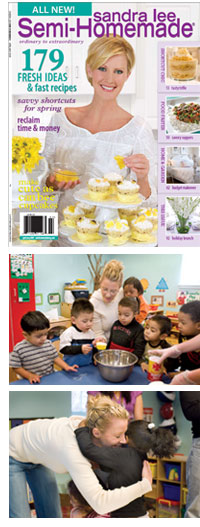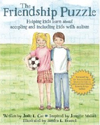Autism making daily routines impossible? Occupational therapy to the rescue!
by Ellen Harrington-Kane
Did you know that April is both Autism Awareness Month and Occupational Therapy Month? Well, it is true — and I think it is a wonderful match! A press release put out by the American Occupational Therapy Association (AOTA) this month explains how occupational therapy practitioners can help people with autism participate in daily routines.
Though a December 2008 Easter Seals-sponsored study showed nearly 80 percent of surveyed families with a child with autism are extremely or very concerned about their child’s potential to achieve independence as an adult, occupational therapy practitioners can help. They can make a difference in the lives and futures of these children by identifying the early signs or indicators of autism spectrum disorder (ASD) so the family and child can then receive necessary support and services. Occupational therapy practitioners help children and their families participate in daily routines and promote their function when facing barriers or difficulties typically associated with this disorder.
“Occupational therapy practitioners assess the specific area or areas in which the individual is showing signs of ASD, and then shares that information with the parent or physician,” said Leslie Jackson, MEd, OT, project director of the Training Modules for Inclusive Early Care and Education at Easter Seals. “April, which is both Occupational Therapy Month and Autism Awareness Month, provides an excellent opportunity to educate the public about the important role the profession plays.”
The Easter Seals Living with Autism Study mentioned in that press release was funded by MassMutual, and pointed out the many needs of individuals and families living with autism across the lifespan. We all acknowledge serious gaps in services and lack of adequate funding for services — those gaps make it all the more important to know where help is available right now.
This month, the American Occupational Therapy Association web site features a talk I put together along with Janie B. Scott MA, OT/L, FAOTA, from Towson University. Our talk explains how occupational therapists help individuals and families participate in education, work, play and daily life by helping a person with the performance of daily life tasks.
Take a quick 15 minutes to listen to all the ways we can help — download a podcast of our talk about the role of occupational therapy in the treatment of autism. When you’re done listening, pass the link on to others you know. The podcast is meant to be downloaded and shared with friends, families, clients, acquaintances, teachers, employers and anyone else who might benefit.








